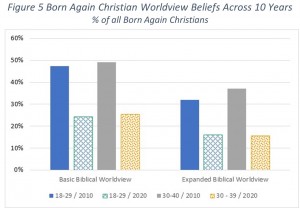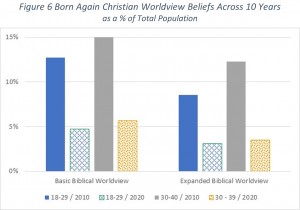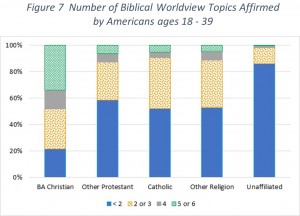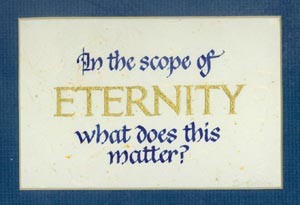Kerby Anderson examines four famous intellectuals—Rousseau, Marx, Russell and Sartre, looking for reasons they are worth following and not finding much.
 Over the last two centuries, a few intellectuals have had a profound impact on Western Culture. British historian Paul Johnson writes about many of these influential intellectuals in his book, Intellectuals: From Marx and Tolstoy to Sartre and Chomsky. In this article, we will look at four of the better-known intellectuals whose influence continues to this day.
Over the last two centuries, a few intellectuals have had a profound impact on Western Culture. British historian Paul Johnson writes about many of these influential intellectuals in his book, Intellectuals: From Marx and Tolstoy to Sartre and Chomsky. In this article, we will look at four of the better-known intellectuals whose influence continues to this day.
Paul Johnson reminds us that over the past two centuries, the influence of these secular intellectuals has grown steadily. He believes it is the key factor in shaping the modern world. In fact, this is really a new phenomenon. It was only the decline of clerical power in the eighteenth century that allowed these men to have a more significant influence in society.
Each secular intellectual “brought to this self-appointed task a far more radical approach than his clerical predecessors. He felt himself bound by no corpus of revealed religion.”{1} For the first time, these intellectuals felt they alone could diagnose the ills of society and cure them without a need to refer to religion or past tradition.
One important characteristic of these new secular intellectuals was their desire to subject “religion and its protagonists to critical scrutiny.” And they pronounced harsh verdicts on priests and pastors about whether they could live up to their precepts.
After two centuries in which the influence of religion has declined and secular institutions have had a greater influence, Paul Johnson believes it is time to examine the record and influence of these secular intellectuals. In particular, he focuses on their moral and judgmental credentials. Do they have the right to tell the rest of us how to run our lives? How moral and just were they in their financial dealings and their sexual relationships? And how have their proposed systems stood up to the test of time?
I will give you a preview. These secular intellectuals lived decadent lives and mistreated so many people in their lives. Their proposed systems of politics, economics, and culture have been a failure and devastated
millions of lives.
What a contrast to the Christian message. Jesus lived a sinless life (1 John 3:5) even though He was tempted as we are (Hebrews 4:15). Jesus called on His disciples to follow Him (Matthew 4:19). Even the Apostle Paul encouraged Christians to follow his example as he followed the example of Christ (1 Corinthians 11:1).
Paul Johnson concludes his book with a number of examples of how some of these secular intellectuals addressed current political and social issues. He also points out that these intellectuals saw no incongruity in moving from their own discipline (where they are masters) to public affairs (where they have no expertise). In the end, we discover that they “are no wiser as mentors, or worthier as exemplars, than the witch doctors or priests of old.”{2}
Jean-Jacques Rousseau
Jean-Jacques Rousseau is a very influential intellectual. Many of our modern ideas of education were influenced to some degree by his treatise Émile. And even to this day many indirectly refer to some of his ideas found in the Social Contract that encapsulated his political philosophy.
Rousseau rejected the biblical narrative and instead believed that society was the reason we humans are defective. He argued, “When society evolves from its primitive state of nature to urban sophistication, man is corrupted.”{3}
Rousseau believed that you could improve human behavior (and even completely transform it) by changing the culture and the forces that produced it. In essence, he believed you can change human beings through social
engineering.
He was, no doubt, a difficult person to be around and very egotistical. Paul Johnson explains that “part of Rousseau’s vanity was that he believed himself incapable of base emotions.”{4} He also had a great deal of self-pity for his circumstances and had “a feeling that he was quite unlike other men, both in his sufferings and his qualities.”{5}
Paul Johnson also reminds us that Rousseau “quarreled, ferociously and usually permanently, with virtually everyone with whom he had close dealings, and especially those who befriended him; and it is impossible to study the painful and repetitive tale of these rows without reaching the conclusion that he was a mentally sick man.”{6}
Apparently, he cared little for those around him. For example, his foster-mother rescued him from destitution at least four times. But later when he did much better financially, and she became indigent, he did little for her.{7} His five children born to his mistress were abandoned to the orphanage hospital. He did not even know the dates of their births and took no interest in them.
Rousseau even acknowledged “that brooding on his conduct towards his children led him eventually to formulate theory of education he put forward in Émile. It also clearly helped to shape his Social Contract,
published the same year.”{8}
The only woman who ever loved Rousseau summed him up this way: “He was a pathetic figure, and I treated him with gentleness and kindness. He was an interesting madman.”{9}
In this article we are studying some of these secular intellectuals because they have had such a profound impact on our world even today. But as we can already see from the life of Rousseau and will see from some of the other men we will discuss below, they lived decadent lives. They really had no business telling the rest of us how to live our lives.
Karl Marx
Paul Johnson concludes that Marx “has had more impact on actual events, as well as on the minds of men and women, than any other intellectual in modern times.”{10}
Marx claimed that his philosophy was scientific. Paul Johnson disagrees and says it was not scientific. “He felt he had found a scientific explanation of human behavior in history akin to Darwin’s theology of evolution.”{11} Although Marx obtained a doctorate in philosophy he really wasn’t a scholar, at least in the traditional sense. He actually spent more time organizing the Communist League and collecting material.
Paul Johnson says there were three strands in Marx: the poet, the journalist, and the moralist. He used poetic imagery which actually became part of his political vision. He was also a journalist and fairly good one at that. He also made use of aphorisms. Many of the most famous were borrowed from others. Two of the best known are: “The proletarians have nothing to lose but their chains,” and “Religion in the opium of the people.”
The moral impulse of Marx began with “his hatred of usury and moneylenders.”{12} He believed that Jews had corrupted Christianity. His solution, therefore, was to abolish the Jewish attitude toward money. Ultimately, the Jews and the corrupted version of Christianity would disappear. Later Marx broadened his critique to blame the bourgeois class as a whole.
How did Marx treat others? “Marx quarreled with everyone with whom he associated” unless “he succeeded in dominating them completely.”{13} He also collected elaborate dossiers about his political rivals and enemies.”{14} Also, Marx “did not reject violence or even terrorism when it suited his tactics.”{15} Later Lenin, Stalin, and Mao would practice such violence on an enormous scale.
Central to his hatred of capitalism was probably his incompetence in handling money. He never seriously attempted to get and hold down a job. Instead, Engels became the primary source of income for Marx and his family. In fact, Engels nearly ended the relationship when he once received a letter from Marx that virtually ignored the death of a woman Engels loved and focused the rest of the letter asking for money.
Life for his wife Jenny and their children was a nightmare. In time her jewelry ended up at the pawnshop. “Their beds were sold to pay the butcher, milkman, chemist and baker.”{16} He even denied his daughters a satisfactory education. After his wife’s death, the family nursery-maid became his mistress and conceived a child whom Marx would never acknowledge. Once again, we see the decadent lives of these secular intellectuals.
Bertrand Russell
Paul Johnson says that “No intellectual in history offered advice to humanity over so long a period as Bertrand Russell.”{17} His first book was published when Queen Victoria was still alive, and his last book came out the year Richard Nixon resigned because of Watergate. He also wrote countless newspaper and magazine articles. He wrote so much because he found writing to be so easy, and he was well paid for it.
Russell was an orphan, but his parents (who were atheists) left instructions for him to be brought up on the teaching of John Stuart Mill.His grandmother, however, would have none of it and raised him in an atmosphere
of Bibles and Blue Books, taught by governesses and tutors. Nevertheless, he rejected religion as a teenager and remained an unbeliever the rest of his life.
“No man ever had a stronger confidence in the power of intellect, though he tended to see it almost as an abstract, disembodied force.”{18} For much “of his life he spent in telling the public what they ought to think and do, and this intellectual evangelism completely dominated the second half of his long life.”{19} On a number of occasions, he found himself in trouble with the law, being sued and fined for articles he wrote.
Paul Johnson remarked that “No one was more detached from physical reality than Russell. He could not work the simplest mechanical device or perform any of the routine tasks which even the most pampered man does without thinking.”{20}
He said that the First World War caused him to revise the views he held about human behavior, in part because he could not understand how people’s emotions function in wartime. Reading him produced “a sense of wonder in the normal reader that so clever a man could be so blind to human nature.”{21}
Bertrand Russell believed “that the ills of the world could be largely solved by logic, reason, and moderation.” But here was his inconsistency. “When preaching his humanist idealism, Russell set truth above any other consideration. But in a corner, he was liable—indeed likely—to try to lie his way out of it.”{22}
As we have documented with other secular intellectuals, Russell also exploited women (especially his wives) as well as others who worked with him. This does seem to be a pattern. When students are required to read the works of many these men, they are never told about their lives. Although we are supposed to respect their intellect, once we study their lives we find that there was very little to respect.
Jean-Paul Sartre
Paul Johnson concludes that “no philosopher this century has had so direct an impact on the minds and attitudes of so many human beings, especially young people, all over the world.”{23} Existentialism was a popular philosophy for decades. His plays were hits. His books sold in the millions.
He grew up as a spoiled child (his father dying when he was fifteen months), with his grandfather giving him the run of his library and his mother providing for him a childhood “paradise.” He enjoyed one of the best educations
and had a habit of reading three hundred books a year.
In some ways, World War II made Sartre, though the people around him found little use for him. He “was notorious for never taking a bath and being disgustingly dirty. What he did was write.”{24} He didn’t do anything to save the Jews. Instead, he “concentrated relentless on promoting his own career. He wrote furiously, plays, philosophy and novels, mainly in cafés.”{25}
Sartre is known for the philosophy of existentialism, though the word was not his. The press invented it, and he came to embrace it. He proposed his philosophy of human freedom at a time when people were hungry for it. But he also meant that the existentialist individual must live without excuses. That is the why he wrote that “Man is condemned to be free.”
Sartre’s companion through life was Simone de Beauvoir, who was a brilliant writer and philosopher. But he treated her “as a mistress, surrogate wife, cook and manager, female bodyguard, and nurse.”{26} He was “the archetype of what in the 1960s became known as a male chauvinist.”{27} He had numerous sexual liaisons that came and went with some regularity.
Paul Johnson concludes that “Sartre, like Russell, failed to achieve any kind of coherence and consistency in his views on public policy. No body of doctrine survived him.”{28} Apparently he stood for very little other than to be linked to the liberal Left.
In this article we have taken a brief look at the lives of some of the secular intellectuals who have had an influence in the world. They still have some influence, and so it is worth asking if we should accept their prescriptions.
These men all lived decadent lives. Most of them mistreated people in their lives. But even more disturbing is the fact that they proposed systems of politics, economics, and culture that have been a failure and devastated millions of lives. They do not deserve the prominence they are often given in our universities today. We are expected to revere them, but there is little in their lives to respect.
Notes
1. Paul Johnson, Intellectuals: From Marx and Tolstoy to Sartre and Chomsky (New York: Harper-Collins, 1988), 1.
2. Ibid., 34.
3. Ibid., 3.
4. Ibid., 10.
5. Ibid.
6. Ibid., 14.
7. Ibid., 19.
8. Ibid., 23.
9. Ibid., 27.
10. Ibid., 52.
11. Ibid.
12. Ibid., 57.
13. Ibid., 70.
14. Ibid., 71.
15. Ibid.
16. Ibid., 77.
17. Ibid., 197.
18. Ibid., 199.
19. Ibid.
20. Ibid., 202.
21. Ibid.
22. Ibid., 203.
23. Ibid., 225.
24. Ibid., 229.
25. Ibid., 230.
26. Ibid., 235.
27. Ibid., 236.
28. Ibid., 253.
©2018 Probe Ministries
 Now let’s compare these 2020 results with the results from our 2010 survey. Figure 5 shows the results across this decade for Born Again Christians looking at the percent who agree with the worldview answers above. As shown, there has been a dramatic drop in both the Basic Biblical Worldview and the Expanded Biblical Worldview.
Now let’s compare these 2020 results with the results from our 2010 survey. Figure 5 shows the results across this decade for Born Again Christians looking at the percent who agree with the worldview answers above. As shown, there has been a dramatic drop in both the Basic Biblical Worldview and the Expanded Biblical Worldview. However, because the percent of the population who profess to being born again has dropped over the last ten years as well, the situation is even worse. We need to look at the percent of Americans of a particular age range who hold to a Biblical Worldview. Those results are shown in Figure 6. Once again, comparing the 18–29 age group from 2010 with the same age group ten years later now 30–39, we find an even greater drop off. For the Basic Biblical Worldview, we see a drop off from 13% of the population down to 6%. For the Expanded Biblical Worldview, the decline is from 9% down to just over 3% (a drop off of two thirds).
However, because the percent of the population who profess to being born again has dropped over the last ten years as well, the situation is even worse. We need to look at the percent of Americans of a particular age range who hold to a Biblical Worldview. Those results are shown in Figure 6. Once again, comparing the 18–29 age group from 2010 with the same age group ten years later now 30–39, we find an even greater drop off. For the Basic Biblical Worldview, we see a drop off from 13% of the population down to 6%. For the Expanded Biblical Worldview, the decline is from 9% down to just over 3% (a drop off of two thirds). Rather than look at the two biblical worldview levels discussed above, we will look at how many of the six biblical worldview questions they answered were consistent with a biblical worldview. In the chart, we look at 18- to 39-year-old individuals grouped by religious affiliation and map what portion answered less than two of the questions biblically, two or three, four, or more than four (i.e., five or six).
Rather than look at the two biblical worldview levels discussed above, we will look at how many of the six biblical worldview questions they answered were consistent with a biblical worldview. In the chart, we look at 18- to 39-year-old individuals grouped by religious affiliation and map what portion answered less than two of the questions biblically, two or three, four, or more than four (i.e., five or six).
